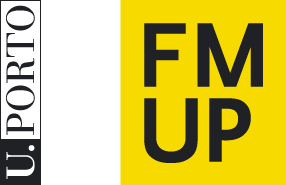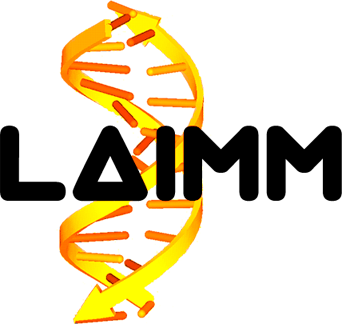Essential Molecular Biology - 'Hands on' Laboratory Course, 26th edition
Article Index
20 January - 7 February 2025
Welcome,
The Essential Molecular Biology course covers the fundamental principles and techniques used in experimental research in the area of Molecular Biology. Essentially practical in nature, it aims at the learning of current genomics and proteomics techniques, as well as the acquisition of skills in laboratory experimentation required for scientific research in biomedicine.
1st Call
Applications open soon
---
Admission
1st call
- Applications: 9 Set - 4 Oct
- Registration: 22 Oct - 11 Nov
2nd call
- Applications: 12 Nov - 13 Dec
- Registration: 2 - 12 Jan 2025
Details
Essential Molecular Biology - A hands-on laboratory course, 26th Edition
Date: 20 January - 7 February 2025
This course covers the fundamental principles and techniques used in experimental research in the area of Molecular Biology. Essentially practical in nature, it aims at the learning of current genomics and proteomics techniques, as well as the acquisition of skills in laboratory experimentation required for scientific research in biomedicine.
By end of the course the participants must be able to:
- Master the basic practices in laboratory work.
- Carry out experimental work and interpret results proficiently and confidently in the
areas of genomics and proteomics. - Apply the acquired knowledge to the design of a laboratory experimental plan.
Programmatic content
- Basic laboratory practice: laboratory safety, pipetting and solution preparation.
Genomics:
- Nucleic acids extraction (DNA, RNA) from cells, tissues or fluids
- Quantification techniques and quality control
- cDNA synthesis by reverse transcription (RT)
- DNA and cDNA amplification by conventional PCR and real time PCR (qPCR)
- Recombinant DNA techniques (enzymatic restriction, transformation, molecular cloning)
- Gene expression studies (RT-qPCR)
Proteomics:
- Protein extraction from cells or tissues
- Quantification techniques
- Electrophoresis (SDS-PAGE)
- Western blotting
- Isoelectric focusing
- Purification by liquid chromatography
- Protein co-immunoprecipitation
Participants will be able to focus their training on specific techniques by selecting defined topics from the programmatic content, with view to acquiring/developing good skills on those techniques that will be more useful from a professional and/or curricular standpoint.
Teaching methodology
A theoretical introduction to each topic will be followed by the practical module, which will entail the demonstration of the laboratory technique followed by its practical execution by the participants. The learning process will develop through direct contact with the laboratory experimental techniques and by the systematic execution of all the essential steps conducing to the successful completion of the experiment.
Evaluation type and criteria
The participants will be evaluated continuously through the execution of the laboratory work (85% of the final grade) and by a multiple-choice computer test (15% of the final grade).
Coordinator
Carlos Manuel Gomes Reguenga, Faculty of Medicine of the University of Porto.
Faculty
Carlos Manuel Gomes Reguenga, Miguel Luz Soares, Filipe Almeida Monteiro, Ph.D.s in the area of Molecular Biology, Faculty of Medicine of the University of Porto.
Target audience
Researchers, near-graduation and graduate students in the areas of Biological and Medical Sciences.
Admission criteria
Basic university training in Biological and Medical Sciences.
Dates
20 January - 7 February 2025
Schedule
Weeks 1 and 2: Monday to Friday - 09h00 to 18h00
Week 3: Monday to Friday - open schedule
Admission
Applications / registrations will be conducted online only, on the website of the Faculty of Medicine of Porto. ![]() Instructions for online application
Instructions for online application ![]() Options of Experimental Focus
Options of Experimental Focus
Online application
1st call: 9 September - 4 October 2024
2nd call: 12 November - 13 December 2024
Online registration
1st call: 22 October - 11 November 2024
2nd call: 2 - 12 January 2025
Number of participants
15 (max) / 8 (min).
Ranking criteria
Curricular analysis, subject of graduation, order of application. Eligibility according to the admission criteria.
Credits
6 ECTS
Tuition fee
FMUP students and staff: 650 €;
all other participants: 700 €.
Language
English / Portuguese.
Information for international participants
Tuition fees
Tuition fees cover tuition and all necessary course-related materials. Meals and accommodation are not included.
Accommodation
As stated, the Course does not provide accommodation. However, foreign participants looking for affordable lodging are encouraged to submit an application to the University Accommodation Services (Social Service of the University of Porto - SASUP). SASUP provide accommodation in 6 Residence Halls across Porto, offering single or shared bedrooms with private bath. The Paranhos Residence Hall is particularly convenient: it's located about 10 minutes walk from the venue.
A lodging application form should be filled, signed and sent to us upon successful application to the course. We will forward the application to SASUP on your behalf and will inform you of the outcome and, if successful, about the details of the reservation. Accommodation fees are to be paid directly to the Accommodation Services after arrival.
VISA requirements
Non-European Union nationals will need a Visa to enter the EU Schengen Area / Portugal to attend the course. Please note that the process of Visa obtention can be lengthy. To avoid disappointment and disruption of plans, you should deal with the matter promptly. We have had several participants needing Visas to attend previous editions, thus we have become quite aware of how important it is doing it in a timely manner. Thus, for international applicants needing a Visa we strongly recommend the application is submitted in the 1st call as there will be sufficient time to procure the Visa. Second call applications are discouraged since the time-frame is too tight for Visa obtention.
Upon successful application an invitation letter will be provided to initiate the Visa process. Following successful application to the course a certificate of application and, if applicable, a lodging reservation letter (from SASUP) will be provided.
Sponsors
TBA


 PT
PT  EN
EN 